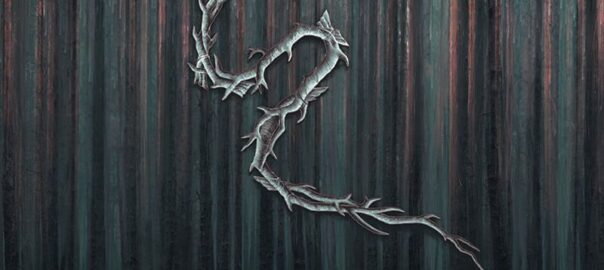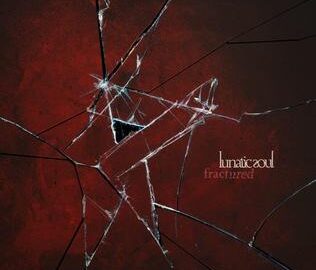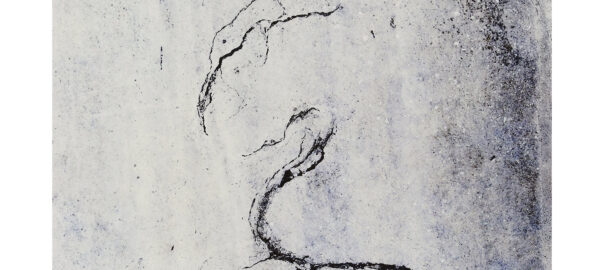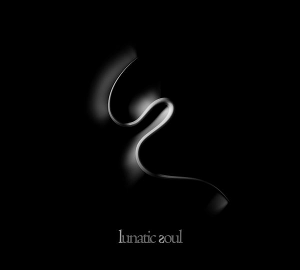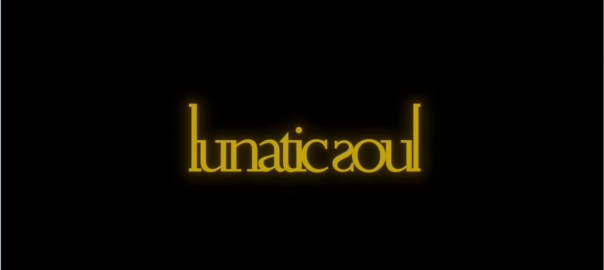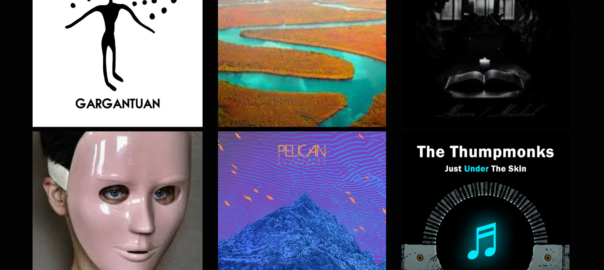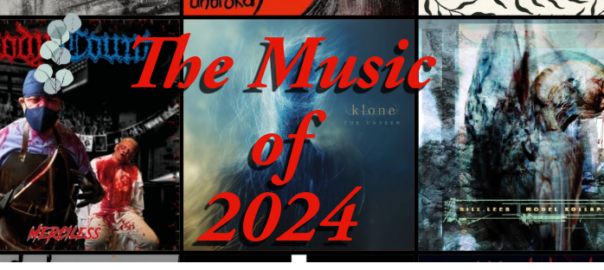This is the last of the current Lunatic Soul releases I have summarized. The eighth album is due to be released later this year, and of course I will review it when I get the opportunity.
Thank you for reading this series of posts. If you have not, you can start at the beginning here, and work your way along by following the arrows at the bottom of each post. Feel free to browse the rest of the site—there are lots of reviews!
Through Shaded Woods
- Released: Nov. 13, 2020
- Colour: Dark green
- My ranking: 4
Through Shaded Woods joined Lunatic Soul I, LS II, and Impressions on the side of Death in the Circle of Life and Death, the first album to do so since 2011. It was intended, somewhat ironically, to embrace life and light–and boy did it ever do that. Musically, it was closer in essence to the first two Lunatic Soul albums, but there is much less ambience and trance. The sparse and jagged sounds of the previous three albums were also gone. TSW deeply celebrates traditional Slavic folk and ancient rhythms brought into modern times: the album is pure folk-rock exuberance run through Mariusz Duda’s prog filter.
It is a much more acoustic album, but it is not a delicate album by any means, with plenty of riff-driven heaviness compliments of the piccolo bass which is used extensively throughout. “Navvie” has to be one of the most kick-ass opening tracks in Duda’s entire discography, and the rest of the album lives up to it, at least until the last song (more on that below). The enthusiasm is infectious–it makes you want to dance, even through the two spectacular proggy epics, “Summoning Dance” (which completely lives up to its name) and “The Passage,” featuring one of Duda’s heaviest riffs. The album is unique in that there are no guests at all: Mariusz plays everything including the drums.
Lyrically, we pick up on the Hero’s journey after he was left to wander at the end of Lunatic Soul II, lost in limbo as he begs for another chance at a new life. He kept his memories to be sure, but these included recollections he’s found he’d rather not carry with him. He is desperate for the opportunity to choose again. However, we do not follow the actions of the protagonist in any detail–we are still deep in his psychology, his desires, regrets, and yearnings, coming to terms with his past. This of course reflects how Duda himself shifted his lyric approach to the project in the years between 2010 (when theoretically it had ended) and 2014 when he returned to it. The inner world of the protagonist takes on much more importance because the lyrics began to reflect the events and issues in Duda’s own life at the time he wrote the albums.
Upside: Exhilaration and sheer unadulterated joy suffuse this album; when Mariusz is having fun, you can surely hear it. Also, the 27-minute long instrumental bonus track “Transition II” is an absolute phenomenon of long-form atmospheric writing on his part. TSW (along with Fractured) has probably done the most to introduce Lunatic Soul to the Riverside fanbase who hadn’t paid much attention to it, as well as to a wider prog community, and it is easy to see why.
Downsides: a couple, which stand out because the album is, in general, spectacularly good. First, the last song, “The Fountain”–yes I know how beloved it is–is overdone. All those swelling strings…alas I find drags the overall feeling down some. Second, handling the drums himself. Mariusz is a competent drummer, and I know why he chose to do it himself, but there are times when a song or two demands more than competence. I love the album but I miss Dramowicz’s presence.
